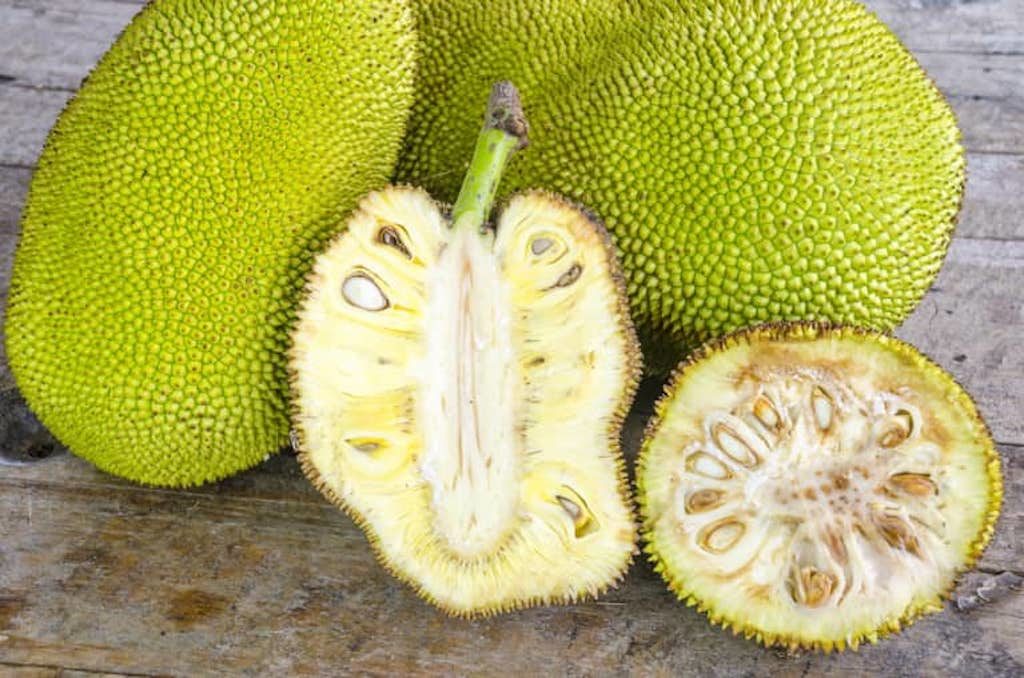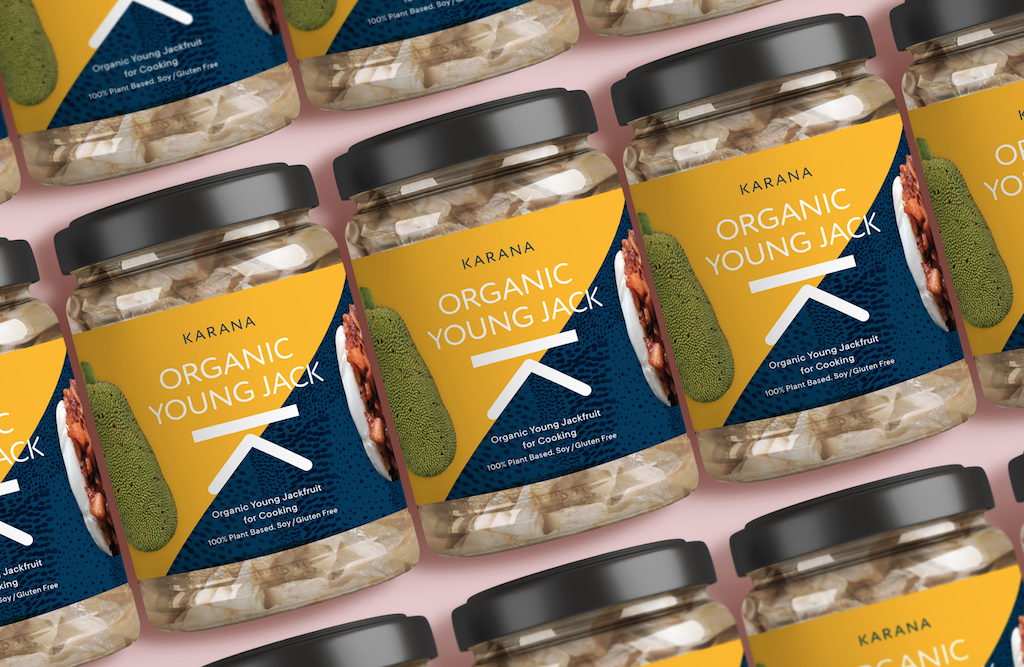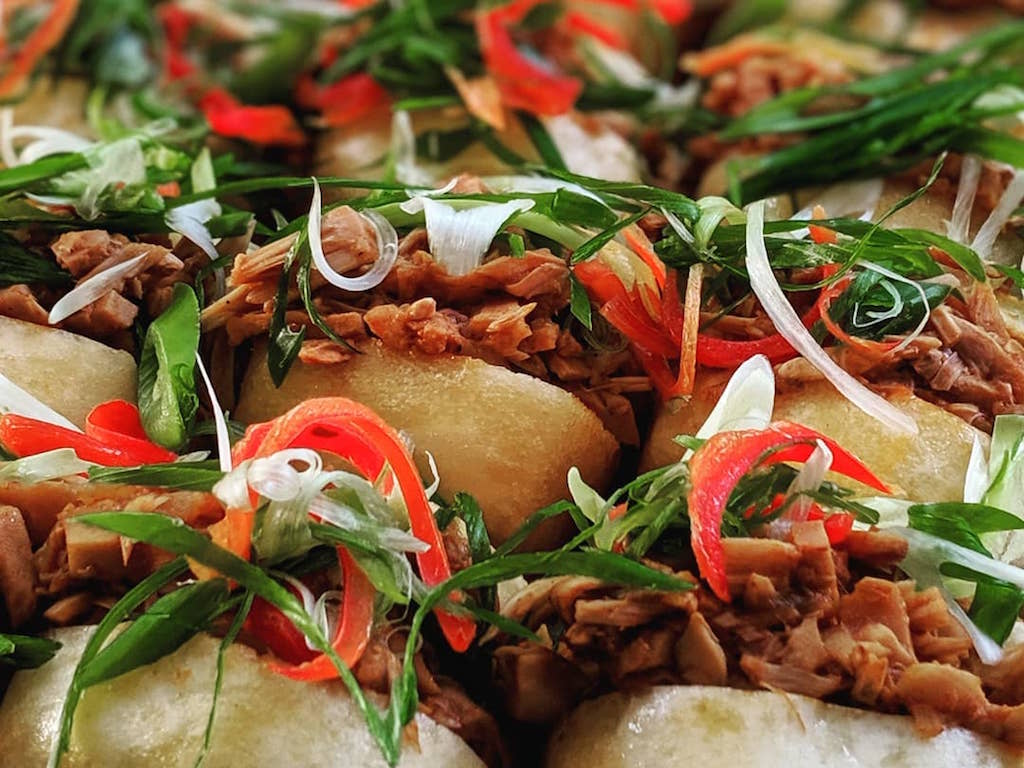4 Mins Read
Singapore-based startup Karana is using regionally abundant young jackfruit to create a sustainable and less processed plant-based meat alternative tailored for iconic Asian dishes. Currently served up in a number of restaurants in Singapore, the company is looking to launch their products in Hong Kong by the end of this year. This comes as more food tech startups are catering to local Asian gastronomic tastes with a range of new vegan meat alternatives becoming popular amongst consumers in the region.
Headquartered in Singapore, Karana was founded by American Dan Riegler and Australian Blair Crichton with a mission to recreate healthy plant-based versions of indulgent Asian dishes. Jackfruit has become somewhat of a trendy ingredient in vegan cooking recently, mainly due to its naturally meat-like texture (think shredded chicken).
Karana uses this whole food, which is native to Asia, and blends it with flavours to create a delicious plant-based meat alternative. This ‘whole foods, meat alternative’ approach won the company the distinction of being one of the five startups globally selected to present at the Good Food Conference held in San Francisco this past September.
Speaking at the conference, co-founder Blair Crichton said: “Currently, we only consume about 150 out of 30,000 edible plant species, which means there is a huge opportunity to explore and innovate around this biodiversity, much of it in Asia…We are working on enhancing Asian plant-based ingredients with technology, without compromising on taste.”

What sets Karana’s young jackfruit product apart from other food tech startups is its use of the whole, unprocessed plant ingredient, harvested at a young stage. Unlike other plant-based alternatives, such as protein-heavy Beyond Meat and Impossible Foods that may contain long lists of ingredients and preservatives, Karana’s product is made from jackfruit, making it a healthy meat alternative that is naturally high in fiber, vitamins and potassium.
Speaking to Green Queen the founders of Karana (a Sanskrit word for doing) explained that the goal is to develop a tech-optimised yet minimally processed young jackfruit product that is user-friendly and ready to use in kitchens. They ultimately want to be able to give people the whole sensory experience of meat through jackfruit, a whole plant food they believe remains an “untapped resource.”
The duo’s mission is backed by technology. Thanks to their processing technology IP, Karana eliminates the possibility for user-error when cooking, making the product ideal for professional chefs and F&B catering kitchens who require consistency and repeatability. As a bonus, the easy-to-use meat substitute is also a minimally processed option.
For high-end chefs who have built careers on creating top-notch food in their own kitchens, the more lab-made plant meats tend not to appeal and this is where Karana can carve a successful niche as a food service grade whole foods plant-based replacement.

The company uses young jackfruit because the starches in the fruit haven’t yet converted into sugar, making it a versatile neutral tasting whole food that absorbs flavours as it cooks, with a stringy texture akin to ‘pulled pork’ or chicken, making ideal for sauce-based ‘filling’ dishes like dumplings and tacos.
While Asians the region over are familiar with the sweet, bright yellow flesh of mature jackfruit and enjoy it often as a dessert or dried snack, young jackfruit as a savoury cooking ingredient is particularly popular in the Indian subcontinent, where it is known as kathal, and served as a vegetarian side dish.
Jackfruit has some environmental advantages too, in addition to its healthy properties. The crop is naturally drought and pest resistant meaning its cultivation does not require herbicides or pesticides and it has real potential to improve global food security, something that cannot be said for popular meat replacement ingredient soy. Found across Southeast Asia, jackfruit is fairly abundant and currently under-utilised. Its popularity could benefit smallholder farmer communities in the region if managed appropriately.
Their jarred organic Young Jack product sourced from Sri Lanka is currently on the market in Singapore as a beta product, and already used across restaurants in the city to make classic dishes like char siu bao, onigiri, Peking Jack (a take on Peking Duck) and spring rolls.
For now, the Karana founders shared that they are focusing on perfecting their young ready-to-cook jackfruit product to be rolled out through food service providers in Singapore, with Hong Kong next. In the future, the company hopes to “elevate the jackfruit-meat-alternative experience” through micro-encapsulating fat into the whole plant ingredient, and are also looking at delivering a retail product to consumers as well – we trialed some winning test dumplings.
This is a great step for plant-based meat alternatives in Asia, as many existing alternative meat products currently on the market are tailored to the Western palette. Aside from Hong Kong’s own minced pork alternative Omnipork by Green Monday and Malaysia’s Phuture Meat who are also looking to launch a plant-based pork analogue, there is room for substitutes that are developed to suit dishes in Asian cuisine. Asian consumer tastes are also evolving and become increasingly open to plant-based substitutes on the market, with a recent survey indicating greater interest amongst Chinese and Indian respondents compared to their American counterparts.
Lead image courtesy of Karana.




